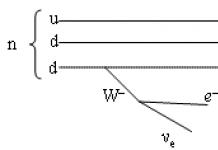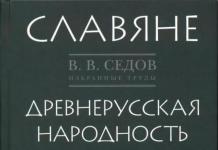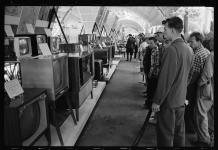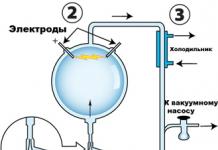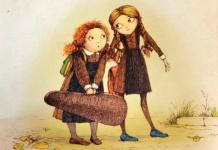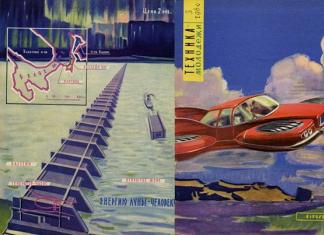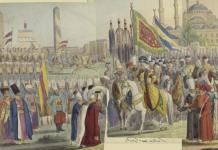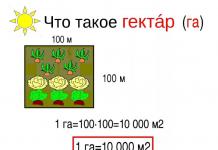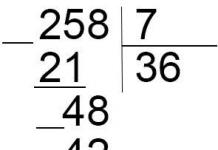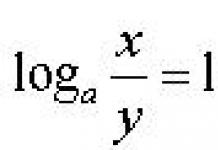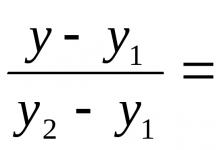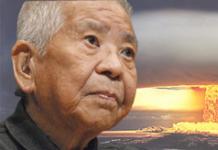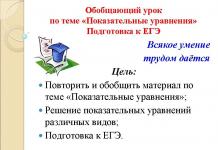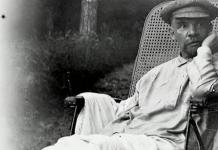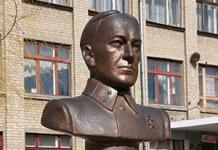Were borrowed from literary works. Some of them came to us from the famous fables of Ivan Andreevich Krylov. For example, the phraseological unit “and the casket just opened”.
In this article we will consider this quote from Krylov's fable, define its meaning and morality.
The meaning of the phraseological unit "and the casket just opened"
To define an expression, we turn to various dictionaries. Explanatory I. S. Ozhegova gives the following interpretation of this stable phrase: "About what seemed complicated, but in fact was completely simple." The linguist noted that the expression is used colloquially.
Let us consider what definition the dictionary of I. A. Bunin, edited by A. I. Vasiliev, gives to the stable phrase "and the casket just opened." The meaning of the phraseological unit in it is as follows. "It is used when they talk about a case, a question, in the resolution of which there was nothing to be wise."
Phraseological dictionary Rose TV contains the following interpretation: "A simple way out of a seemingly difficult situation."
As we can see, all definitions are expressed in different words, but have a general meaning.
Origin story
As already noted, it came to us from the fable of 1808 "Casket" Krylov I. A. It begins with the main idea of the author. What follows is the story of how one mechanic tries to unravel the secret of a casket without a lock: how it opens.

He twirls it this way and that, breaks his head, presses on different places. But the casket does not lend itself, and the audience laughs. The mechanic tried, sweated, tired and gave up. And the chest opened simply, it was not locked.
Moral of the enduring phrase
There is such as "breaking into an open door." It perfectly conveys the meaning of the phraseological unit "and the casket just opened." The author of the quotation from the fable we are considering conveys to the readers the idea that often seemingly difficult situations have a completely simple way out.
The phrase from this work instantly became winged. She is popular with writers and journalists. The former often use it in dialogues, while the latter use it in headlines. They use this expression to show that things are actually simpler and clearer than they seem.
The meaning of the passage from the fable is relevant to all of us. After all, it often seems difficult to us that sometimes actually has a simple solution. In such cases, it is worth remembering Krylov's fable "Casket". It shows us beautifully how people complicate things that have an easy way out.
Some stable word combinations were borrowed from literary works. Some of them came to us from the famous fables of Ivan Andreevich Krylov. For example, the phraseological unit "and the casket just opened."
In this article we will consider this quote from Krylov's fable, define its meaning and morality.
The meaning of the phraseological unit "and the casket just opened"
To define an expression, we turn to various dictionaries. Explanatory I. S. Ozhegova gives the following interpretation of this stable phrase: "About what seemed complicated, but in fact was completely simple." The linguist noted that the expression is used colloquially.
Let us consider what definition the dictionary of I. A. Bunin, edited by A. I. Vasiliev, gives to the stable phrase "and the casket just opened." The meaning of the phraseological unit in it is as follows. "It is used when they talk about a case, a question, in the resolution of which there was nothing to be wise."
Phraseological dictionary Rose TV contains the following interpretation: "A simple way out of a seemingly difficult situation."
As we can see, all definitions are expressed in different words, but have a general meaning.
Origin story
As already noted, this catch phrase came to us from the fable of 1808 "Casket" Krylov I. A. It begins with the main idea of the author. What follows is the story of how one mechanic tries to unravel the secret of a casket without a lock: how it opens.

He twirls it this way and that, breaks his head, presses on different places. But the casket does not lend itself, and the audience laughs. The mechanic tried, sweated, tired and gave up. And the chest opened simply, it was not locked.
Moral of the enduring phrase
There is such a stable expression as "breaking into an open door." It perfectly conveys the meaning of the phraseological unit "and the casket just opened." The author of the quotation from the fable we are considering conveys to the readers the idea that often seemingly difficult situations have a completely simple way out.
The phrase from this work instantly became winged. She is popular with writers and journalists. The former often use it in dialogues, while the latter use it in headlines. They use this expression to show that things are actually simpler and clearer than they seem.
The meaning of the passage from the fable is relevant to all of us. After all, it often seems difficult to us that sometimes actually has a simple solution. In such cases, it is worth remembering Krylov's fable "Casket". It shows us beautifully how people complicate things that have an easy way out.
Attention, only TODAY!
- "Leaves and Roots" - a fable by Ivan Andreevich Krylov
- Analysis of Krylov's fable "; Oboz" ;: a work that is relevant in the modern world
- "On fish fur": the meaning of phraseological units and the history of its appearance
- The catch phrase "woe to the vanquished"
- The history of the phraseological unit "do not offend the flies": origin, meaning and interpretation
- "Sprinkle ashes on the head": the meaning of a phraseological unit, the history of its origin, its use
All interesting
Some people are ready to go to anything in order to become famous, to become famous. In our age of modern technologies, it has become easier to gain wide popularity thanks to the Internet. However, in order to gain notoriety, some resort to the bad ...
Historical events often leave their indelible imprint, adding new stable phrases to the vocabulary. Among them, we can note the expression "to run like a red thread." In this article we will consider this phraseological unit. Let's open ...
A bright and progressive future belongs to people who are creative, talented and capable. Any achievements are subject to those who implement their innovative ideas that change the lives of all the inhabitants of the planet. Once upon a time people did not even know what ...
The really catch phrase “And the little casket just opened” is one of the few that have not lost their original meaning - the task, the solution of which seemed very difficult, turned out to be simple, not requiring much effort.
From which fable the phrase "And the chest just opened"
It so happened that there are not many people who love the literary genre of fable, whether it be the works of domestic or foreign writers, however, almost any child studies them at school, and he even learns some of them by heart, and, it would seem, should remember at least approximately what are they about, if he really does not remember the author. However, he often does not remember. The works of the Russian author I.A.Krylov became a happy exception in this sense. The fables about the fox and the crow, the monkey and the glasses, Demyanov's ear were not only not forgotten, but also gave us a lot of expressions that have become winged.
The fable "Casket" written in 1807 tells about a casket with a secret made by the Master, which the Sage tried unsuccessfully to unravel. The final line of this instructive story in verse is the phrase "And the casket was just opening." Although the plot of the fable itself can not be remembered by all, but a clear formulation of morality, without which even a fable is not a fable, has firmly entered our life and continues to be relevant even now.
One of the meanings invested in this phraseological unit is also a call not to try to solve a simple problem in complex ways that can only aggravate it. The most consonant with this expression can be considered analogs of the no less well-known phraseological phrase "to break into an open door" and the unforgettable "on every wise man of enough simplicity."
"Casket" is one of the first original fables of Krylov. Krylov's fable Casket tells the story of an experienced mechanic who unsuccessfully tried to open the chest. Despite the efforts of the master and the tips of the assembled spectators, the casket was never opened - it turned out that there was simply no castle in it.
Fable Casket read
It often happens to us
And labor and wisdom to see there,
Where is one to guess
It's easy to get down to business.
They brought a Casket from the master to someone.
The decoration, the cleanliness of the Casket threw himself into the eyes;
Well, every Casket admired the beautiful.
Here comes the sage into the mechanics room.
Glancing at the Casket, he said: "A casket with a secret,
So; he is without a lock;
And I undertake to open; yes, yes, I am sure of that;
Don't laugh so surreptitiously!
I will find the secret and I will tell you the Casket:
In mechanics, and I'm worth something. "
Here he began to work on the Casket:
Turns it around from all sides
And breaks his head;
Now a carnation, then another, then a bracket shakes.
Here, looking at him, another
Shakes his head;
Those whisper, and those laugh among themselves.
The ears just give off:
"Not here, not so, not there!" The mechanic is more torn.
Sweated, sweated; but finally tired
I lagged behind Casket
And how to open it, I did not guess in any way:
And the Casket just opened.
Moral of the fable Casket
It often happens to us
And labor and wisdom to see there,
Where is one to guess
It's easy to get down to business.
Fable Casket - analysis
"Little Casket" is a work that is significant for the great fabulist. Analysis of Krylov's fable Casket usually begins from the end, with the phrase "And the casket just opened." With these words, Krylov says that you should not over complicate the tasks set without trying to solve them in the simplest way.
But in this context, the long-term efforts of an experienced master, ridiculous prompts from the public are also of considerable importance. This is the personification of attempts to understand Krylov himself. The writer claims that there is no need to carefully select the key to his fables - more often than not, it lies right on the surface!
There is another way of reading this work. The writer did not give the reader a concrete understanding of how exactly the casket was opened? From this follows another moral of Krylov's fable Casket - not a single problem has the only correct solution, each case requires a special approach. The reader himself must understand whether the casket really did not have a lock, or the mechanic simply could not find it.



